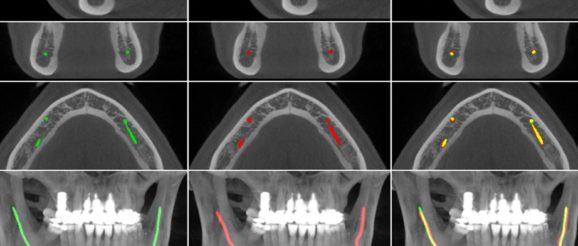Finnish AI innovation to ease dentists’ work

Researchers at the Finnish Centre for Artificial Intelligence (FCAI), Tampere University Hospital, Planmeca and The Alan Turing Institute have developed an artificial intelligence-powered model for locating the mandibular canal, a canal in both sides of the lower jaw that houses the alveolar nerve.
Dentists and radiologists typically determine the location of the canals – a crucial piece of information for planning a dental implant operation and defining the size and placement of the implant – manually from X-ray or CT scans.
The process requires considerable time and effort.
The Finnish research team showed that its deep-learning model is capable of defining the location of the canals automatically and accurately, even more so than the statistical shape models that are presently considered the best automatised location method.
The FCAI highlighted that the model can match the accuracy of human specialists in cases where the patient has no special conditions, such as osteoporosis.
“In more complex cases, one may need to adjust the estimate, so we are not yet talking about a fully stand-alone system,” stated Joel Jaskari, the lead author of the research report from Aalto University.
The use of artificial intelligence offers also another concrete advantage: consistency in speed and accuracy.
“The aim of this research work is not, however, to replace radiologists but to make their job faster and more efficient so that they will have time to focus on the most complex cases,” emphasised Kimmo Kaski, a senior advisor of computational science at Aalto University.
The findings were published in Nature Scientific Reports.
Looking for more good news? Subscribe to our newsletter
